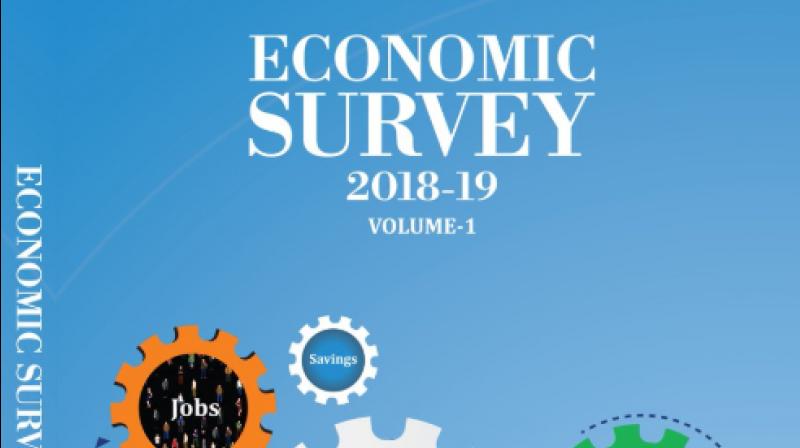Economic Survey: India is committed to achieving SDGs, invest in human capital
‘India is committed to achieving these SDGs and a strong social infrastructure is key to achieve them,’ it said.

New Delhi: India's development path is intertwined with investments in social infrastructure and the country's march towards achieving Sustainable Development Goals is firmly anchored in investing in human capital and inclusive growth, the Economic Survey said on Thursday.
Stating that India is committed to achieving these Sustainable Development Goals (SDGs), it said to reap the benefits of demographic dividend, the Centre is committed to improving the outcomes in education and skilling, and to provide employment and affordable healthcare to all.
Scaling up development programmes for improving connectivity, providing housing, and bridging gender gaps in socio-economic indicators is of paramount importance for sustainable development, the Economic Survey for 2018-19 said.
The SDGs are a collection of 17 global goals and 169 targets set to be achieved by 2030, aimed at addressing global challenges. "The 2030 agenda for sustainable development as reflected in the 17 SDGs and 169 targets, calls for global partnership to ensure peace and prosperity for people and the planet, now and into the future," it said.
It is recognised that ending poverty and other deprivations must go hand-in-hand with strategies that improve health and education, reduce inequality and spur economic growth in a sustainable manner. "India is committed to achieving these SDGs and a strong social infrastructure is key to achieve them," it said.
The government, it said, has been focusing on provisioning of assets such as schools, institutes of higher learning, hospitals, access to sanitation, water supply, road connectivity, affordable housing, skills and livelihood opportunities. This, it said, gains significance given the fact that India is home to the world's youngest population as half of its population is below the age of 25.
It has also been estimated that demographic advantage in India is available for five decades from 2005-06 to 2055-56, longer than any other country in the world. This demographic advantage can be reaped only if education, skilling and employment opportunities are provided to the young population.
As the world aspires to achieve the SDGs by 2030, one of the most important factors which will determine whether countries achieve their targets set under SDGs will be 'gender equality'. The government has initiated several programmes including Beti Bachao, Beti Padhao to mainstream women and make them active agents of change in the society.
The expenditure on social infrastructure like health and education is a critical indicator of the commitment of the government towards these sectors. The expenditure on social services by the Centre and States as a proportion of GDP has registered an increase.
The government has been committed to providing social security which is evident in the initiation of major social sector schemes during the last five years.

